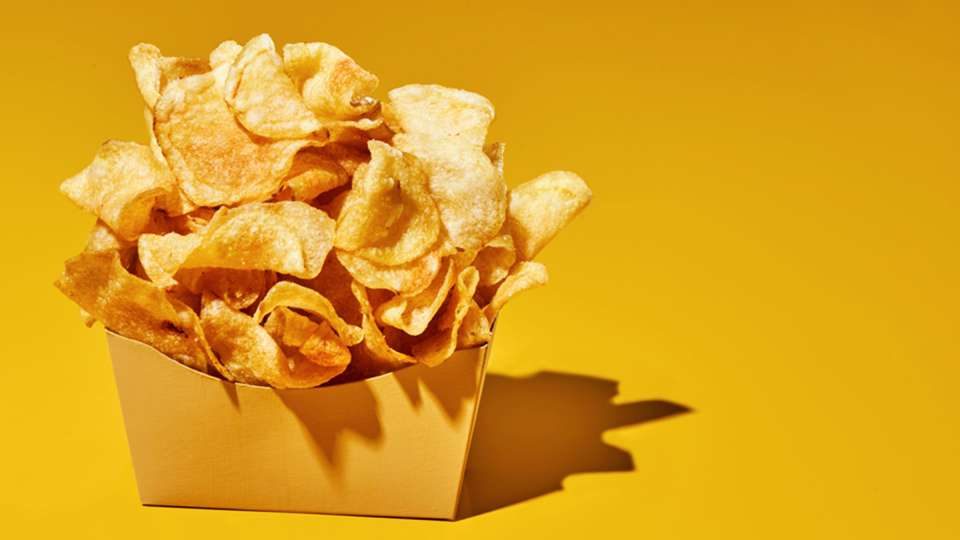
Have you ever tried to lose weight, only to regain it shortly after? Or you’ve tried different diets and exercise programs only for none of them to work?
If it feels like your body is resisting losing weight, you may not be that far off. Research increasingly suggests that the body will work to defend its fat, even if it has more than it needs.
Why? You might have to blame it on your favorite snack foods — but not in the way you think.
In defense of body fat
First, it’s important to point out that having more body fat is not a morally bad or good thing.
People of all sizes can live healthy lifestyles — and it’s also true that being overweight or obese can put people at risk for health problems.
According to the Centers for Disease Control and Prevention (CDC), nearly 42% of the adult U.S. population is obese. Obesity can increase someone’s risk for chronic diseases like diabetes, heart disease and cancer that can lead to premature death. Obesity disproportionately impacts Black, Hispanic and Native American people.
“A lot of people look at obesity as a lack of willpower, people eating more than they should. But the amount of body fat you have is biologically regulated, like temperature, blood oxygen levels, and sodium and blood sugar levels,” says Dr. Michael Schwartz, a professor of Medicine as well as Metabolism, Endocrinology, and Nutrition in the UW School of Medicine and founding director of the UW Medicine Diabetes and Obesity Center of Excellence.
Your body likes to keep itself close to its baseline weight, whatever that happens to be. If you gain or lose a little weight, your body will work on its own to get you back to baseline.
How? Your brain receives information about how much energy you have stored (aka how much body fat you have) via a variety of blood-borne signals. One of these is a hormone called leptin that is made by fat cells themselves. The more energy you have stored, the higher your leptin levels are, which trigger the brain to decrease appetite and increase the body’s metabolic rate to keep you at your baseline weight.
But when someone is obese, their body weight control system resets so as to defend a higher level of body fat, even though leptin and related signals are elevated. It's as if the brain loses the ability to accurately sense the signals that tell it how much body fat is present – the brain is convinced that the amount present is what should be defended.
“Obesity doesn’t just happen right away, it happens over years. The problem is that the body regulates the new weight you’re at, resetting its defense of body fat mass as you go, in part because the brain is being misled about how much fat mass you have,” says Schwartz.
But what, exactly, causes the brain to think this? The answer may lie not in how much someone eats, but what kind of food they eat.
Our ancestors didn’t eat potato chips
First of all, it’s important to note that there is no single factor that causes obesity. Genetics and developmental influences in infancy and early childhood can predispose someone to gain weight when they are in an environment that involves eating high-calorie foods and being mostly sedentary (aka the environment most of us are in).
This is not the situation our human ancestors were in when they had to work hard to find food each day. Our bodies evolved to hunt for our next meal, not pick it up at the supermarket on the way home from work.
Yet more and more research is pointing to specific types of foods, such as ultra-processed foods, as a culprit in obesity and the inability to lose excess weight (as well as things like diabetes, of course).
The idea is that eating primarily highly processed foods messes with your metabolism, tricking your brain into thinking your body isn’t getting enough fuel and making you feel hungry even after you’ve eaten. You eat more, gain weight, and the process continues. Essentially, the brain thinks the body is semi-starving, even though the body has excess fat.
If you want to get technical, this is how it works: You eat ultra-processed carbohydrates that your body digests and metabolizes much more rapidly than other carbs. Secretion of insulin increases while secretion of glucagon is paused. Your blood sugar levels increase, which triggers an increase in insulin, which pushes more glucagon to be converted to fat. Then your blood sugar drops off quickly, making you hungry again.
This idea is different than the traditional concept of obesity being caused by someone eating more calories than they burn during the day. More research is needed to learn how much of a role ultra-processed foods play and what factors predispose someone to gain weight.
Soda, pop-tarts, candy bars, oh my!
Spoiler alert: Most food is (a little) processed. If you wash and cut your fruit, cook your veggies, blend ingredients into a smoothie, or bake muffins, congratulations, you’re eating processed food.
Cooking, baking and other forms of minimal processing have been around for a long time, and they have allowed us to make our food more palatable, safer (as in killing harmful bacteria), preservable and, honestly, more enjoyable. Food that is minimally processed in these ways maintains most or all of its natural molecular structure and nutrient profile, even as the way it looks or tastes is changed.
Ultra-processed food is different. It turns regular food into a science experiment, a perfectly formed and packaged entity that is quick, effortless and tasty. It’s so easy for the human body to digest that some experts have taken to calling ultra-processed food predigested or prechewed food (eww).
Humans aren’t baby birds; it's good for our digestive systems to put in a bit of work to make sure the food we eat is correctly converted to energy that fuels us. To that end, it can be helpful to know which foods are minimally processed and which are ultra-processed, to limit how much you eat of the latter.
Examples of ultra-processed foods:
- Crackers or chips with flavoring
- Fried foods
- Soda and energy drinks
- Frappuccinos
- Hot dogs and sausages
- Cupcakes and cakes
- French fries
- Pizza
- Granola bars and energy bars
- Many milk alternatives (like almond or oat milk)
- Flavored yogurt
- Premade sauces
- Deli and lunch meats
- Butter alternatives
It's OK to have ultra-processed foods occasionally — just try to limit them. But we’re not going to tell you that you shouldn’t have a cupcake every now and then (because cupcakes are awesome).

 Healthy ideas for your inbox
Healthy ideas for your inbox





